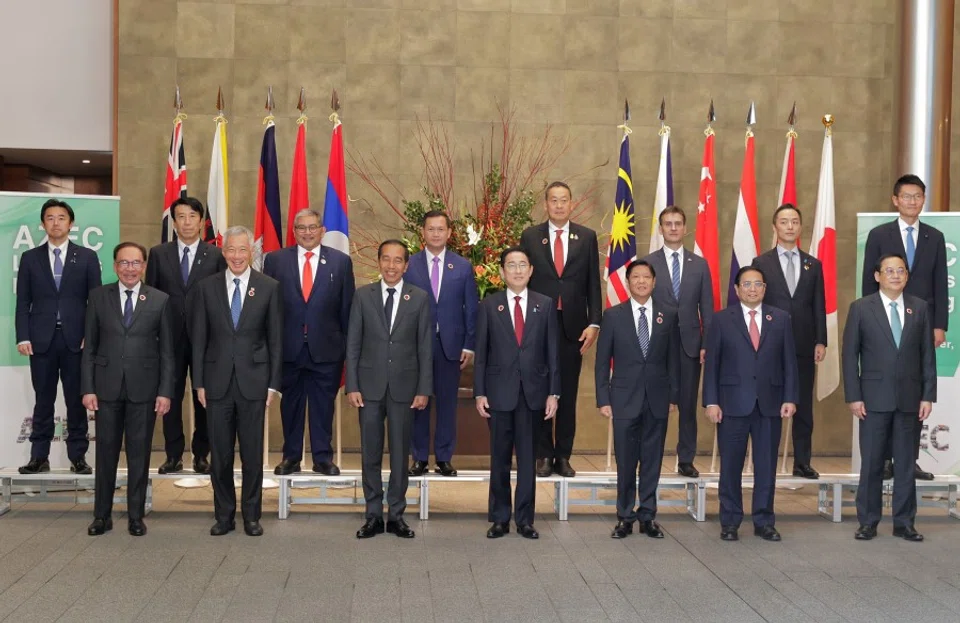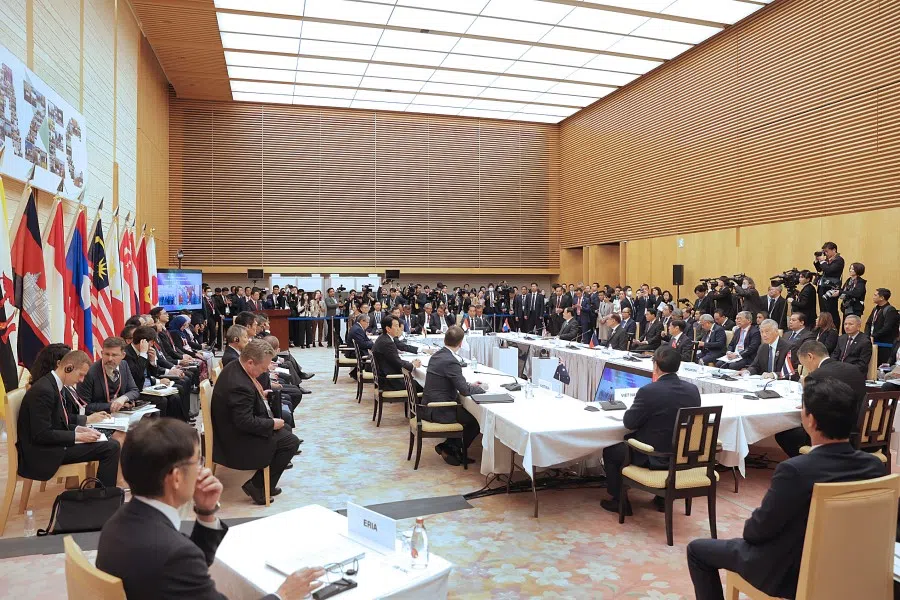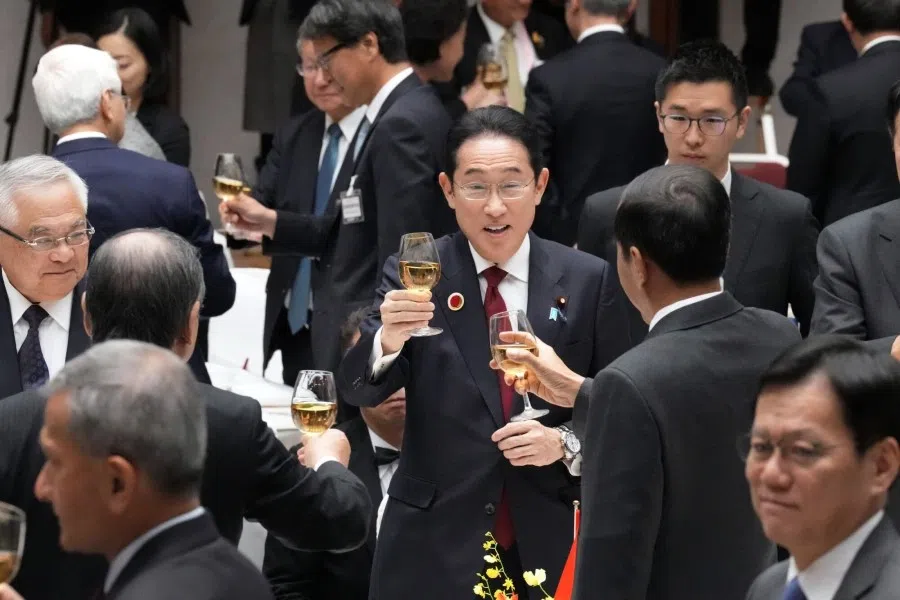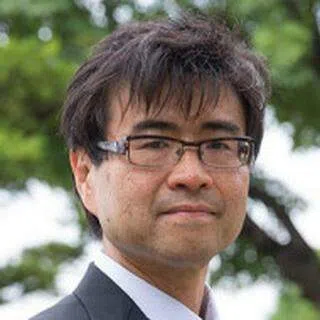Japanese academic: Japan's declining national power must be considered in its security policy
While the Fukuda Doctrine introduced by former Japanese Prime Minister Takeo Fukuda was meant to promote peace and stability in Southeast Asia and ASEAN, the current approach of getting countries to choose between Japan and China might prompt ASEAN countries to hesitate from cooperating with Japan, says Japanese academic Hidekazu Wakatsuki.

In recognition of the 50th anniversary of the friendly and cooperative relationship between Japan and ASEAN, the Commemorative Summit for the 50th Year of ASEAN-Japan Friendship and Cooperation was held on 16-18 December 2023.
From the 1970s, when cooperation between Japan and ASEAN began, to the 1990s, the Japanese economy had an overwhelming presence in Asia. However, in the 21st century, Japan went from being a giant boasting absolute economic power to just one of the major countries engaging ASEAN.
Falling economic clout
Japan's GDP in 2022 was 4.23 trillion yen (US$29.65 billion), but it was overtaken by China in 2010 as the second largest economy, and is expected to be overtaken by Germany in 2023 as the third largest economy, falling to the world's fourth largest economy.
On the other hand, the total GDP of the five founding member countries of ASEAN in 2022 was US$3 trillion, and the total GDP of the ten countries was about US$3.6 trillion, about 80% of that of Japan, and is expected to overtake Japan by 2030.
Becoming equals
At this special summit meeting, both the Japanese government and the ASEAN countries naturally had these long-term trends in mind.
At the conference, the conventional relationship of "Japan providing assistance and ASEAN receiving assistance" was revised, and the concept of "co-creation" was proposed, which aims to jointly create the regional economy and society.
Japanese Prime Minister Fumio Kishida said that "[Japan and ASEAN] are in an era of compound crises" and "hope to grow together as partners to co-create a society and economy" and will continue to pursue "peace and prosperity". He also expressed his enthusiasm by saying, "Let us present to the world a vision for the future that will last for generations to come."
... there is no doubt that the message was aimed at China, which is becoming more assertive under the Xi Jinping regime and is advancing its maritime expansion in the South China Sea and East China Sea.

However, there is little prospect that the vision presented at this conference will be preserved for future generations. This is because the direction of Japan's diplomacy is in some ways an impediment to promoting cooperation with ASEAN.
Japanese diplomacy targeting China's rise
In recent years, Japanese diplomacy has been strongly conscious of China's remarkable rise, and has tended to position cooperative relations with ASEAN in the context of countering China.
In fact, the joint statement announced at this conference states that the "Free and Open Indo-Pacific vision [affirms] fundamental principles in promoting peace, stability, and prosperity in the region" and declares that "[ASEAN and Japan will] uphold the principles of democracy, the rule of law and [...] protection of human rights and fundamental freedoms".
Although they did not name names in the joint statement, there is no doubt that the message was aimed at China, which is becoming more assertive under the Xi Jinping regime and is advancing its maritime expansion in the South China Sea and East China Sea.
At individual meetings with the leaders of various countries accompanying the summit meeting, Japan also announced that it would provide Malaysia with a rescue boat and warning and surveillance drones as Official Security Assistance (OSA). Japan also has an agreement with Indonesia to provide large patrol vessels under OSA.
ASEAN countries prefer cooperation
However, in ASEAN countries, calls for strengthening relations with Japan in the context of countering China are weak, and instead, diplomatic policies that incorporate China are being drawn up.
Malaysia's Prime Minister Anwar Ibrahim, who visited Japan, expressed the idea that the "Look East Policy" proposed by his country in the 1980s now includes China. Marty Natalegawa, who served as Indonesia's Foreign Minister from 2009 to 2014, further noted that "Japan should not view its relationship with ASEAN in the context of other geopolitical developments, such as with US-China and US-Russia". He further noted that "Japan's relationship with ASEAN is not important for some other purpose, but for itself".
Japan's approach of using values such as democracy and human rights as leverage to force a choice between China and Japan could make ASEAN countries shy away from cooperation with Japan.
Since its formation in 1967, ASEAN has distanced itself from the US-Soviet conflict and Sino-Soviet conflict during the Cold War era, and in recent years has sought to stabilise the regional order while distancing itself from the US-China conflict.
In addition, some member countries are close to China, others to the US, and their political systems are diverse. Japan's approach of using values such as democracy and human rights as leverage to force a choice between China and Japan could make ASEAN countries shy away from cooperation with Japan.
Fukuda Doctrine: transcending differences in political and social systems
In 1977, Prime Minister Takeo Fukuda announced the Fukuda Doctrine, outlining the principles of Japan's diplomacy towards ASEAN. The following year, he concluded a treaty of peace and friendship with China.
With this, Japan made clear its stance as a peace-loving nation, transcending the power games and differences in political and social systems among major powers, and promoting friendly relations with China and the Soviet Union based on the principle of "all-round peace diplomacy".
Looking back, the Fukuda Doctrine was not just about supporting economic development and strengthening of resilience of ASEAN countries. The policy objective was to promote peace and stability throughout Southeast Asia while promoting peaceful coexistence between Indochina countries, including communist Vietnam, and ASEAN countries.
What the ASEAN countries are now asking of Japan is to stand on the basis of the Fukuda Doctrine and work with the ASEAN countries as "equal partners" to create and maintain regional order.

The Fukuda Doctrine has continued to be a customary epithet in Japan's recent diplomacy with Asia. However, it seems that there is a departure from the doctrine and its backbone, "omnidirectional peace diplomacy", which is the basic spirit of seeking effective relationships that transcend differences in political and social systems.
What the ASEAN countries are now asking of Japan is to stand on the basis of the Fukuda Doctrine and work with the ASEAN countries as "equal partners" to create and maintain regional order.
What Japan needs to do
Prime Minister Fukuda advocated building "heart-to-heart relationships" with ASEAN countries based on his insight that "relationships based solely on goods and money will eventually sever ties".
At present, ASEAN countries have achieved economic development. In a situation where the most important economic partner for these countries is shifting from Japan to China, "goods and money" are no longer the clamp between Japan and ASEAN countries.
In this sense, building a "heart-to-heart relationship" based on Fukuda's awareness of issues is an urgent issue for Japan's current diplomacy.
What Japan will need in 2024 is to establish a security policy that suits its needs in light of its relatively shrinking national power.
Furthermore, the Fukuda Doctrine's principle that "Japan will not become a military power" sent the message that "Japan will not dare to become a military power, despite being an economic and technological power".
However, the paradox of "even though the economy is shrinking and technological capabilities are starting to lag behind other countries, Japan is choosing to become a military power (of course, this is not a return to the militarised Japan that existed before the Showa era)" is emerging, with the Kishida administration announcing a policy of doubling defence spending and considering possessing the ability to attack enemy territory.
What Japan will need in 2024 is to establish a security policy that suits its needs in light of its relatively shrinking national power.
Under the policy of "Look at ASEAN" rather than "Look East", they will humbly learn about the economic dynamism of ASEAN countries and connect it to new vitality for Japan. Even so, in this day and age, I am once again amazed at the extraordinary durability of the Fukuda Doctrine as a policy.





